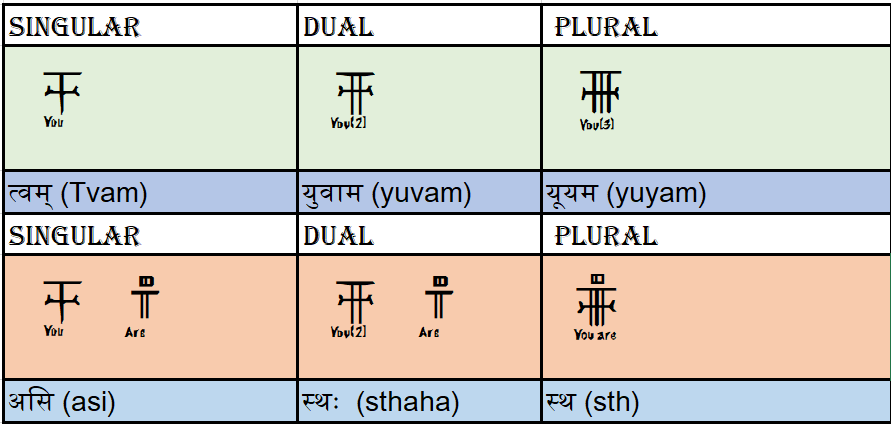SECOND PERSON


भवत्
भवत(Bhavat) forms are usually used to describe the respect, without saying you/your we use bhavan as a substitute for second person and these are the declensions of second person.You is generally used with friends or person who is very close to you, sometimes we can see that arjuna refers to lord krishna as you(tvam) and also in many songs we refer to god as tumhare. o palanhare nirgun aur nyaare tumhare bin humra konon nahi hamri uljhan samjhao bhagvan
Masculine declension
Declensions of Pronoun भवत् in Feminine
Declensions of Pronoun भवत् in Neuter
Sentences in sanskrit
- You are - त्वम् असि (tvam asi)
- You were - त्वम् अभवीः (tvam abhavīḥ)
- You will be - त्वम् भविष्यसि (tvam bhaviṣyasi)
- You are: त्वमस्ति (tvam asti)
- You became: अभव (abhava)
- You will become: भविष्यसि (bhaviṣyasi)
- You were: अस्ति (asti)
- You became: अभव (abhava)
- You will become: भविष्यसि (bhaviṣyasi)




































































Discussion